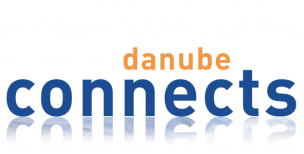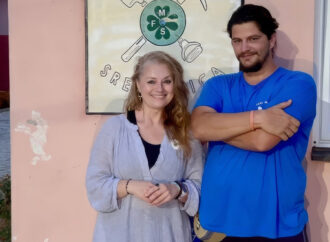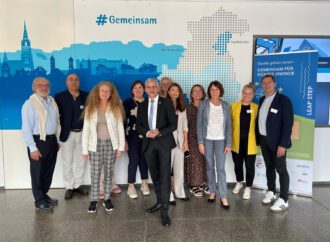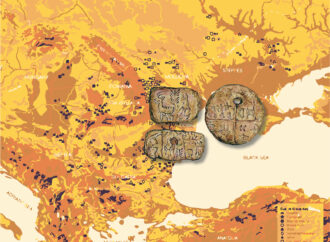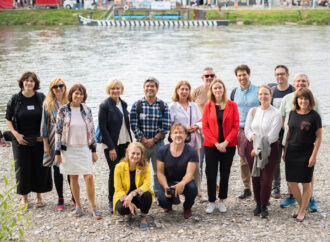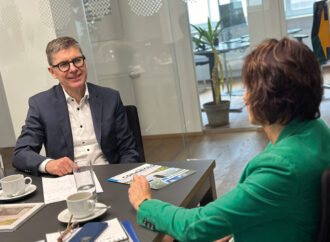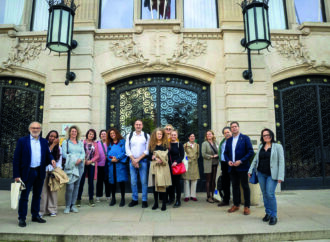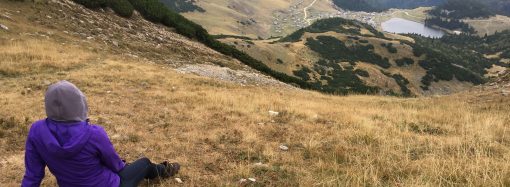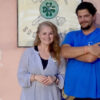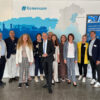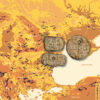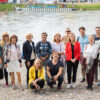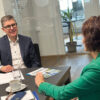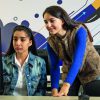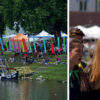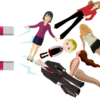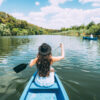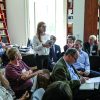The Danube, the most multinational river in the world, is constantly facing new dangers: One of the biggest pollution hazards is microplastics – it threatens fish and fish larvae in particular. It is estimated that around 40 tonnes of microplastics, i.e. pieces of plastic with a diameter of five millimeters or less, are transported through
The Danube, the most multinational river in the world, is constantly facing new dangers: One of the biggest pollution hazards is microplastics – it threatens fish and fish larvae in particular. It is estimated that around 40 tonnes of microplastics, i.e. pieces of plastic with a diameter of five millimeters or less, are transported through the river every year. Scientists worldwide are researching other negative effects of plastic on our bodies and the environment.
What does this have to do with me? The “Go Zero, Danube!” project which is funded by the Baden-Württemberg Stiftung in the program Perspektive Donau aims to raise awareness of environmental protection and the global context, not least to contribute to a clean Danube. In four international youth encounters, the topics of waste prevention, upcycling and zero waste will be explored in greater depth and practicable solutions for the Danube region will be developed. Together with the participants a website and a toolkit with the results will be developed.
Discovering new things and creating new perspectives together
Young people aged 18 to 25 from Croatia, Bulgaria, Germany and the Ukraine are coming together for a week to get their hands dirty and tackle the problem of the growing mountains of waste. They get to know green start-ups and young entrepreneurs in the field of environmental protection and sustaina- ble consumer behaviour. The meetings are designed with many elements of experiential education, self-catering as far as possible without plastic, workshops, a publicity campaign and social media activities. There is also a touch of activism when you see how conscious and seriously the young adults take the topic. Since March 2019, three encounters have already been implemented and many new friendships have been made.
Developing European civic awareness
The issue of environment and waste prevention concerns everyone and can be an opportunity to break down intercultural barriers and bring together young adults from different European countries on an equal footing. It is about exploring new ways of living together in a sustainable way, regardless of origin or language. The groups are accompanied by experienced guides from Romania, Ukraine and Germany, who already have networks in the fi eld. The young people are encouraged to participate in networks on a long-term basis and to help shape educational work by sharing their experience. Individual initiative and participation are central components of the project work.
Applying what has been learned
During the encounter, the participants are already encouraged to apply what they have learned themselves and to put it into practice in public or in an event. A joint action in the form of a flash mob on Stuttgart’s Schlossplatz attracted at-tention (February 2019). A tour to Zero Waste Start-Ups in Kiev in June 2019 enabled a best practice exchange. During the third meeting in Croatia in November 2019, the participants organised a public workshop for the city of Krizevci. In each meeting practical workshops and DIY were the highlights. How do you actually make your own shampoo? What does gardening have to do with waste prevention? How can I shop plastic-free without getting annoyed? A lot was learned, discussed and radically changed.
Zero Waste in the times of Covid-19
Due to the epidemic, the last meeting could not take place in March 2020 as planned and was postponed until next year. Instead, a series of online meetings and webinars were organised for and with former participants. Under the title ”Circular Sessions”, the partner Ozero from Ukraine developed a training module on the topic of circular economy. The digital format with interesting participatory learning methods enabled participants from the whole Danube region to take part. It was a good and profi table experience, with a much smaller ecological footprint. A social media group was also establis- hed, which jointly published content on the topic: How to live plastic-free in times of Covid-19. It turned out that there are more opportunities than obsta- cles. Teresa Boulle, Starkmacher Mannheim
“To meet with strangers who have common thoughts and interests like mine. To learn new things about zero waste and how I can be helpful, to share my ideas and find a support, to have fun and to inspired.” Izabela Ilieva, Svishtov, Bulgaria
Besides learning so much about the zero waste lifestyle with all its benefi ts and also problems, that need to be solved, I got to meet truly amazing people.”
Young people wanted for 2021! https://gozerodanube.blogspot.com Contact and registration: t.boulle@starkmacher.eu Youtube:
